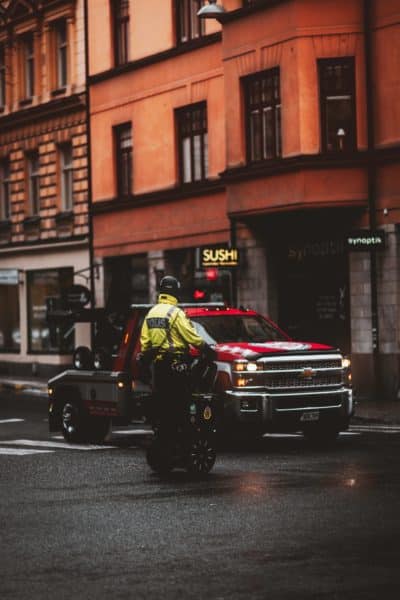Being pulled over by the police is a stressful and frightening situation. If you are suspected of drinking and driving, there are a few questions you can expect a police officer to ask and some exercises they may request that you to perform.
When you are pulled over, remember to place your hands on the steering wheel and remain calm. Don’t make any sudden movements and be polite to the officer. You must provide your driver’s license, insurance information, and car registration to the police.
They will ask you questions about how much you have had to drink and where you were, but you are not obliged to answer any of those questions. You may also be asked to take a breathalyzer test and perform a series of actions to determine the level of alcohol in your body and your level of inebriation.
IMAGE: PEXELS
Types Of Sobriety Test
There are several different exercises an officer may ask you to perform if they suspect you of driving under the influence of drugs. The Standardized Field Sobriety Test (SFST) consists of three basic tests.
Horizontal Gaze Nystagmus
The horizontal gaze nystagmus refers to the eyeball jerking involuntarily. It usually occurs when the eyeballs are rotated at extreme angles. If you are inebriated, the jerking of the eyeball may happen at less acute angles.
The police officer will ask a person to follow a light or pen with their eyes. If a person cannot follow the moving object, or if nystagmus occurs, it may indicate that that person’s alcohol levels are too high for them to be driving.
The One-Legged Stand
This test involves a person standing on one foot and counting to thirty, using a 1001, 1002, 1003 count. If you sway, hop or put your foot down or your arms out, the police will have reason to believe you are drunk.
The Walk-And-Turn
This test requires the subject to walk in a straight line for nine steps, turn, and walk back for nine steps. They must walk toe to heel without stumbling or using their arms for balance. They must also follow the officer’s instructions and not start or stop walking before they are instructed to do so.
If you are wondering how these tests came to be considered reliable for determining sobriety, they were tested for validity in 1998 by the National Traffic and Safely Commission. The study found that people who failed the tests had high blood alcohol levels a high percentage of the time.
Do You Have To Take A Sobriety Test?
California is an implied consent state, which means that when a person gets a driver’s license, they agree to take a chemical test in the event that they should be pulled over on suspicion of drunk driving. If you refused to take a breathalyzer or a blood test, you might face license suspension.
The consent only applies to chemical tests; hence you are under no obligation to accept a field sobriety test. However, you should know that if you refuse to take the FST, your refusal may be used as evidence in court.
What To Look For In An Attorney
If you are facing DUI charges, you will need an attorney who is well versed in California law such as, DUI lawyer C. Robert Brooks. A trained attorney will know how to negotiate on your behalf and what research to do to get your charges reduced. It is never a good idea to drive after drinking, but it happens, and the right attorney can help ensure that your fines are reasonable and that you will be back on the road soon.
If you are interested in even more lifestyle-related articles and information from us here at Bit Rebels, then we have a lot to choose from.
IMAGE: PEXELS


COMMENTS